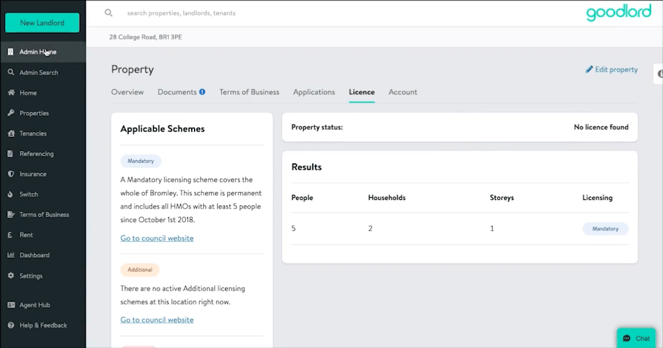Days
Hours
Minutes
Seconds
May 1 2026 - Renters' Right Act Commencement Day
You have 0 days to:
Serve any final Section 21 notices
Stop accepting above-asking rent offers
Prepare for the rental bidding ban
Remove “No DSS” from adverts
Remove “No Children” from listings
Show one clear rent price
Stop using fixed-term agreements
Switch to periodic tenancy templates
Check which tenancies go periodic
Stop taking rent before signing
Take no more than one month’s rent
Move all evictions to Section 8
Train staff on new notice rules
Create Section 13 process flow
Add two months to rent reviews
File court claims for Section 21s
Update landlord move-in grounds
Update landlord selling grounds
Send the RRA Information Sheet
Create written terms where missing
Update How to Rent processes
Review tenant screening questions
Update pet request processes
Stop backdating rent increases
Discuss rent protection backbooks
Act now before it is too late...
Why letting agents should pay attention to property licensing in 2024
CEO of Kamma, Orla Shields, discusses the stresses of strict property licensing, fines and everything in between.
Orla Shields
Jan 24, 2024
Property licences are an absolute minefield for letting agents and landlords. It’s incredibly stressful when you realise that one in four properties require a licence, and the law is changing every eight days.
It’s exhausting to be an agent to navigate all these changes. And it’s quite scary, too, when you factor in the fear of fines. It’s hard to avoid a story about a letting agency being fined for breaching a property licence, and in London alone, fines have reached nearly £10 million.
Here are three things that letting agents should consider this year as you go into 2024.
- Manual checks mean human error
- Rent Payment Orders are getting stricter
- Property licensing issues aren't going away any time soon
Listen to the podcast with Orla Shields to hear more
1. Manual checks mean human error
Who really wants to manually check every single property, and then cross-check it against your local government’s website? Is it even easy to find the latest property rules in your area? Are you wasting your time having to call the council just to check you’re compliant?
It’s exhausting, it’s boring, and - let’s be honest - not what you want to focus on in your day-to-day job, when you could be winning new landlords.
And leaving it up to one person in the office means risk. New schemes have popped up in Nottingham, Birmingham, and Manchester in the past few months. It’s easy to miss something - you’re only human after all. Do you really want to rely on a person for this in 2024?

2. Rent Payment Orders are getting stricter
The Renters (Reform) Bill will introduce so many administrative changes. You probably know the headlines - that Section 21 is being abolished and we’re moving over to a single system of periodic tenancies - but did you know that Rent Repayment Orders are changing, too?
A Rent Repayment Order (RRO) means that a tenant or a local authority can take a landlord to a tribunal if a landlord commits at least seven offences - whether it is using violence to enter a property, or not complying with improvement notices.
If the tribunal rules in favour of the landlord, they usually have to repay a tenant up to 12 months rent. However, this is now increasing to 24.
This is another issue that landlords may worry about, so letting agents should be mindful of this. Help your current landlords by showing them you’re on top of the headache of property licences and not putting them at risk.
3. Property licensing issues aren’t going away any time soon
In a way, when a council issues a fine for breaching a property licencing regulation, it’s a bit like issuing a parking ticket. Simply put, it’s easy money for them, and it’s very easy to get caught.
It’s a grey area with who gets fined as well. For example, if you take the rent for a property and you’re not the managing agent, you may assume you’re safe from property licensing. However, it has been shown in court that you would come into scope for being liable as well, and could risk being fined.
Letting agents need to be just as vigilant as landlords. Otherwise, you could face serious trouble in 2024 - especially for something that could easily have been avoided.
Kamma’s technology allows letting agents to easily see whether a property needs a licence - removing all the unnecessary legwork and admin. Kamma’s technology is integrated into the Goodlord platform at no extra cost, which means that all Goodlord customers are able to easily look up the status of a property at any time.
If you are not a Goodlord customer, why not book a demo to see how it works in action?


.jpg)


